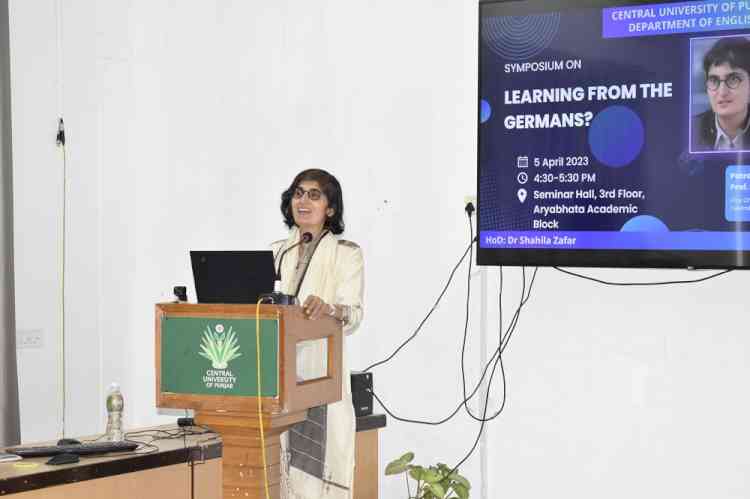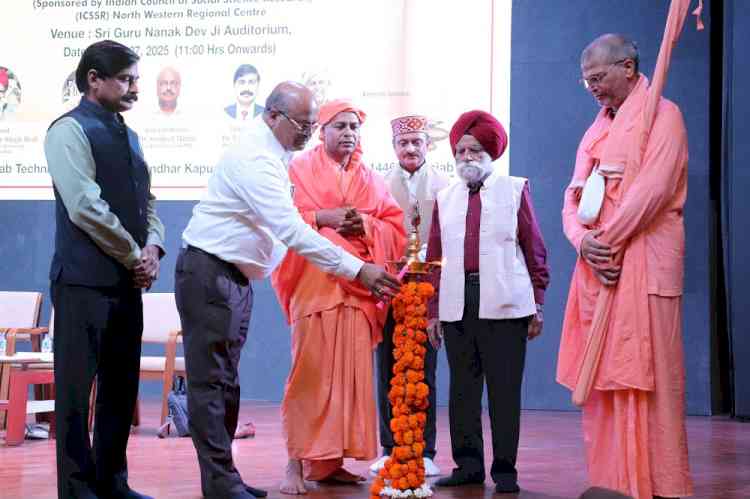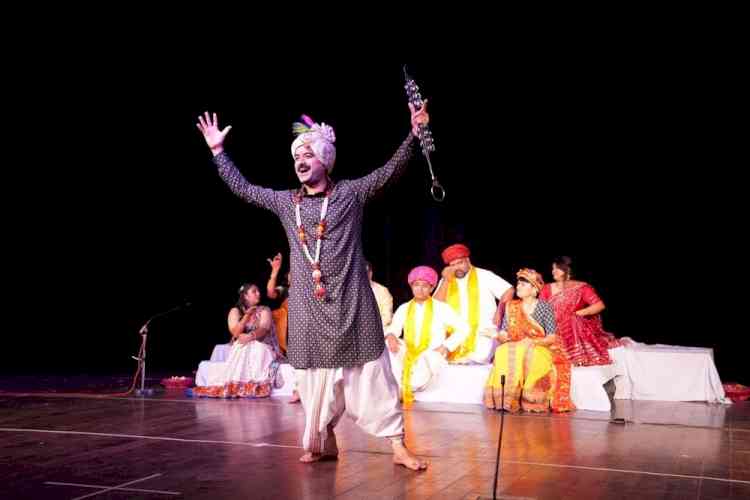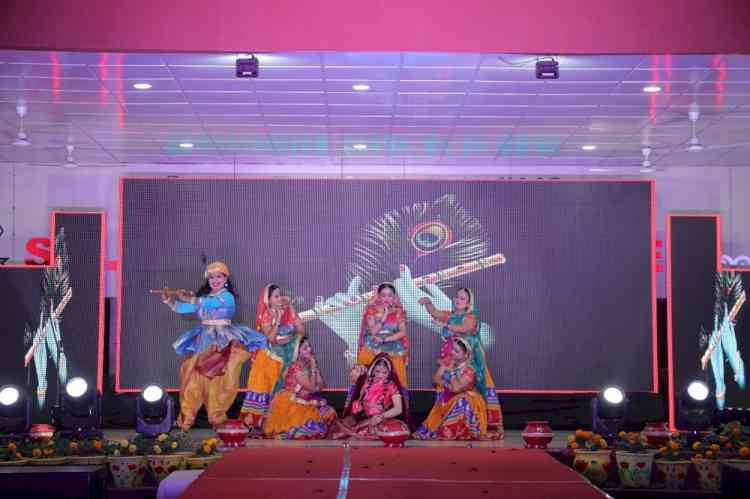Central University of Punjab organises invited lectures on ‘Learning from Germans?’ and ‘The Enlightenment and its Discontents’ by Prof. Nikita Dhawan (Dresden University, Germany)
The Department of English, Central University of Punjab, organised two invited lectures entitled 'Learning from the Germans?’ and ‘The Enlightenment and its Discontents' on 5th and 6th April, 2023, respectively. The invited speaker of this lecture series was Prof. Nikita Dhawan, Chair, Political Theory and History of Ideas at the Technical University Dresden, Germany, and currently, Gerda Henkel Visiting Professor of German Studies, Stanford University, USA.

Bathinda, April 7, 2023: The Department of English, Central University of Punjab, organised two invited lectures entitled 'Learning from the Germans?’ and ‘The Enlightenment and its Discontents' on 5th and 6th April, 2023, respectively. The invited speaker of this lecture series was Prof. Nikita Dhawan, Chair, Political Theory and History of Ideas at the Technical University Dresden, Germany, and currently, Gerda Henkel Visiting Professor of German Studies, Stanford University, USA.
Prof. Nikita Dhawan in her first lecture explored the consequences of Nazism and the Holocaust, along with the relevance of postcolonial theory for the German-speaking context. She referred to the book "Learning from the Germans: Race and the Memory of Evil’ authored by Susan Neiman, to argue that German society has largely accepted responsibility for and learned from actions taken by the country in the past, particularly during World War II. The progress is reflected in their laws, languages, and educational systems. However, a number of controversies in the past years over Germany's colonial past indicate the pitfalls of German work in the past. These controversies confront us with the challenge of how to think together about different forms of discrimination. Prof. Dhawan addressed the conundrums of memory politics and engaged in the "unfinished conversations" between Holocaust and Postcolonial Studies.
In the second lecture, entitled ‘The Enlightenment and its Discontents’, Prof. Dhawan, further added that the intellectual and political legacies of the Enlightenment endure in our times, whether we aspire to orient ourselves by them or contest their claims. In the face of feudality, violence, prejudice, and subservience to authority, the Enlightenment intellectuals enunciate the ideals of equality, rights, and rationality as a way out of domination and towards freedom. She highlighted that although the European writers endorsed enlightenment through critical thinking, they did not consider the material context. Any kind of critique of the Enlightenment will lead to normative nihilism. Prof. Dhawan stated that history has given us many instances to state that most arguments presented to endorse enlightenment with ideas of citizenship, equality, human rights, etc. include some element of conceptual violence. Therefore, we need to reimagine our relationship with the European Enlightenment.
At the outset, Dr. Vipan Pal Singh welcomed the participants and introduced the invited speaker. Prof. Monisha Dhiman, Director, IQAC, felicitated Prof. Dhawan. After the lecture sessions, Dr. Shahila Zafar, Head, Department of English, expressed her gratitude towards Prof. Dhawan for enlightening the participants. She proposed a formal vote of thanks towards the end of the programme.
On this occasion, faculty from the Dept. of English, Prof. Alpna Saini, Dr. Dinesh Babu, Dr. Rohitashv Yadav and Dr. Pritivi Raj, were present. Faculty, research scholars, and students from different departments, and different institutes from Bathinda attended the programm, in person and online.


 City Air News
City Air News 








